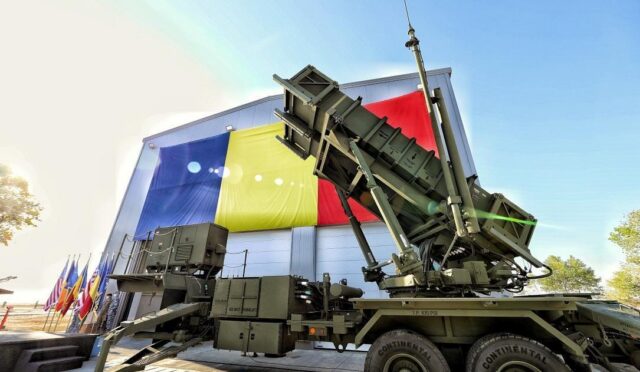European Defense Communication: The Key to Effective Strategy
As European nations amplify their defense expenditures, relying solely on financial resources will not suffice to strengthen their military capabilities. The situation has been brought into sharp focus by historian Niall Ferguson, who at a recent Times event, bluntly stated, “No,” when asked if the UK’s Strategic Defence Review was adequate in today’s geopolitical climate. His predictions are concerning, foreseeing a potential collapse of Ukraine and a possible Russian invasion of neighboring Lithuania, igniting fears of nuclear conflict for the UK—an alarming but realistic perspective that resonates with many.
Ferguson’s insights may come from a contrarian standpoint, but numerous European leaders echo his concerns. The assurance from the United States, once a cornerstone of European defense strategy, is increasingly questioned. This has prompted significant military investments across Europe; the Bundestag’s decision to approve substantial increases in defense spending exemplifies this shift. Political figures like UK’s Keir Starmer and France’s Emmanuel Macron are pushing for unprecedented levels of funding to bolster military readiness.
The Instability of Defense Alliances
The anxiety surrounding defense is palpable among European nations, many of which now brace for potential aggression, with senior officials warning that Europe might only have 18 months to prepare for an invasion. The perception is that current defense expenditure lacks the strategic depth necessary to fend off a determined foe; merely increasing budgets may not meet the military standards needed against an established threat.
Historically, Europe has relied on American military might, resulting in a lack of preparedness against foreign threats. With defense budgets traditionally allocated to a small number of established contractors, innovation has taken a back seat in military strategies. In contrast, the U.S. has taken a different approach, stimulating innovative defense solutions through agencies such as the Defense Advanced Research Projects Agency (DARPA) to harness new technologies, allowing them to maintain a competitive military edge.
The Need for Innovative Approaches
The call for a British equivalent of DARPA has been echoed by political figures like Dominic Cummings, emphasizing that such agencies could yield significant economic and technological advancements beyond defense. However, the current form of the Advanced Research and Invention Agency (ARIA) falls short of expectations, seen more as a symbolic gesture rather than a functional entity fostering innovation.
With innovation gaps evident across Europe, the defense sector faces challenges in engaging smaller, agile companies that could contribute effectively to modern military needs. Established firms tend to attract the majority of defense funding, stifling the innovation required to address contemporary threats. Ukraine’s effective use of commercial drones for reconnaissance and combat has highlighted the significance of rapid innovation, leveling the playing field against larger foes.
The Silent Contributors of Defense
For smaller companies specializing in dual-use technologies, visibility in the defense sector is crucial. Unfortunately, these agile innovators often lack the lobbying power of traditional defense giants like Lockheed Martin or BAE Systems. To influence policy effectively, they need to articulate the value of their advancements clearly and concisely, a task complicated by the technical jargon that permeates the defense industry.
Adopting a language that resonates with both policymakers and the public is essential. By fostering understanding, these companies can secure the investment needed to compete and collaborate effectively. In Europe, however, the term “defense” often carries negative connotations, discouraging private sector interest and deterring investors. This barrier significantly limits opportunities for innovative firms that could enhance Europe’s defense posture.
Building Trust Through Transparency
The future of Europe’s defense capabilities hinges not only on increased spending but also on how effectively its most innovative companies can establish their credibility. If these organizations are viewed as unproven or overly technical, decision-makers may gravitate toward established firms at the expense of groundbreaking advancements. It is crucial for the defense sector to embrace innovation to develop next-generation technologies and solutions.
Rebuilding trust in the defense landscape involves evolving perceptions around military spending. There’s a need to showcase the potential benefits of investing in innovative technology for security. Creative and proactive communication strategies could ultimately lead to a more secure Europe, reinforcing the vital links between emerging defense technologies and current geopolitical realities. The urgency of these challenges cannot be overstated; Europe must adapt swiftly to ensure its defense strategies are robust and forward-thinking.







